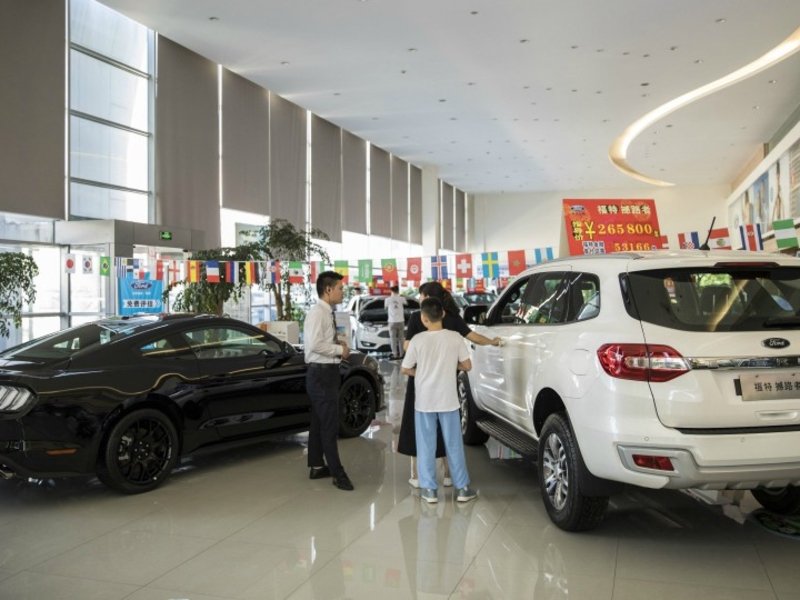
BEIJING — Auto sales in China plunged 43 percent in March, data released on Friday showed, as the world’s biggest light-vehicle market struggles to get into gear following a prolonged demand slump that has been exacerbated by the coronavirus outbreak.
Light-vehicle deliveries have now declined 21 consecutive months, but the latest drop was less steep than February, when volume plunged 79 percent as the coronavirus outbreak curbed demand.
Sales fell by 1.43 million vehicles from the same month a year earlier, according to data from the China Association of Automobile Manufacturers, the country’s largest auto industry association.
The number of new energy vehicles sold — excluding those from Tesla Inc. — fell for the ninth straight month to 53,000, CAAM said. NEVs are battery-powered electric, plug-in hybrid and hydrogen fuel-cell vehicles. Tesla does not report sales to CAAM.
“If we only consider domestic factors, we believe the industry in the second half of the year should be able to recover to the level of the same period last year,” senior CAAM official Xu Haidong said. “But it is still difficult to make up for first-quarter and first-half losses.”
Local authorities have been trying to revive sales, with cities that rely heavily on vehicle manufacturing, such as Guangzhou in the south and Ningbo in the east, offering sales incentives.
CAAM also said a survey of 204 manufacturing hubs showed 99.5 percent of plants have resumed output following closures aimed at stemming the spread of the novel coronavirus. It said 86 percent of workers have returned to work.
The coronavirus has led to the deaths of over 3,300 people since the world’s second-biggest economy reported the first cases at the end of last year.
CAAM said auto sales will likely drop more than 10 percent in the first half of the year, and around 5 percent for all of 2020 if the outbreak is effectively contained before April.
China’s overall light-vehicle sales fell 8.2 percent last year, pressured by new emissions standards in a slowing economy as well as trade tension with the United States.